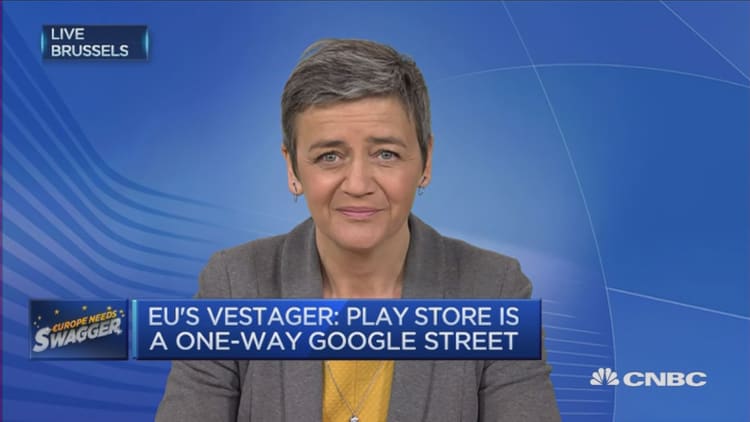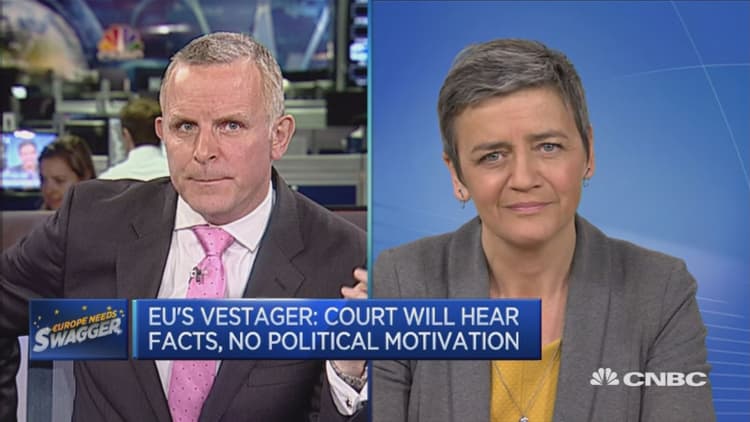


The decision to bring antitrust proceedings against U.S. tech giant Google was not politically motivated, Europe's competition chief told CNBC, a day after the company was accused of abusing its dominance in the mobile market with its Android operating system.
On Wednesday, the European Commission – the executive arm of the European Union (EU) – said it had informed Google that the company is in breach of the bloc's antitrust rules relating to Android. The Commission said Google's requirement that device manufacturers to pre-install Google services such as Search and its Chrome web browser was hampering competitions.
Android is open-source and run on over 80 percent of the world's mobile phones.
This is not the first regulatory clash between Google and the EU. The internet giant is already battling EU charges of promoting its own shopping service in Internet searches at the expense of rival products, a case which has dragged on since late 2010.
But European Competition Commissioner Margrethe Vestager, said this is not a politically motivated attack on Google or U.S. companies.
"Even if anyone had a political goal or had feelings or a passion about companies, well our test is with the courts eventually and the court will hear nothing about feeling and politics, they want the facts of the case…and therefore we cannot interfere politically…because otherwise we risk to lose it," Vestager told CNBC in a TV interview on Thursday.
"It would be a big problem if we had a bias. I am here to protect competition, to protect the consumer…this is not about companies, this is about how companies behave in the European market, no matter their flak, no matter their ownership."

In a blog post Wednesday, Google outlined how it worked with device manufacturers and said it would co-operate with the EU.
"We look forward to working with the European Commission to demonstrate the careful way we've designed the Android model in a way that's good for competition and for consumers," Kent Walker, senior vice president and general counsel at Google said.
Some of the Commission's other objections included:
- Preventing manufacturers from selling smart mobile devices running on competing operating systems based on the Android open source code;
- Giving financial incentives to manufacturers and mobile network operators on condition that they exclusively pre-install Google Search on their devices.
Vestager argued that because of Android's the dominance of Android, start-ups wanting to challenge Google in areas such as search are hampered.
"We think we have found wrongdoing so that Google is getting even stronger in search and making it more difficult for the newcomers, for the innovators, and of course also for the customers in the very end," the competition chief said.
But Walker said in his blog post that Android was costly to develop and update and therefore services like search helped Google generate revenue to maintain it. Google's legal head also said that many Android devices came pre-installed with other apps from competitors like Facebook and Microsoft.
There is no deadline for the EU's antitrust investigations to be completed, but if Google is found to be in breach of the rules, the company could face fines of up to 10 percent of its annual revenues.
"We can work with the companies to find remedies to solve the situation. Or we can go the very formal way where it will end up with a fine. And, of course, our goal is to open up the market to solve it. And here it is actually quite simple, it is for Google to stop what we see as very damaging practices," Vestager said.


